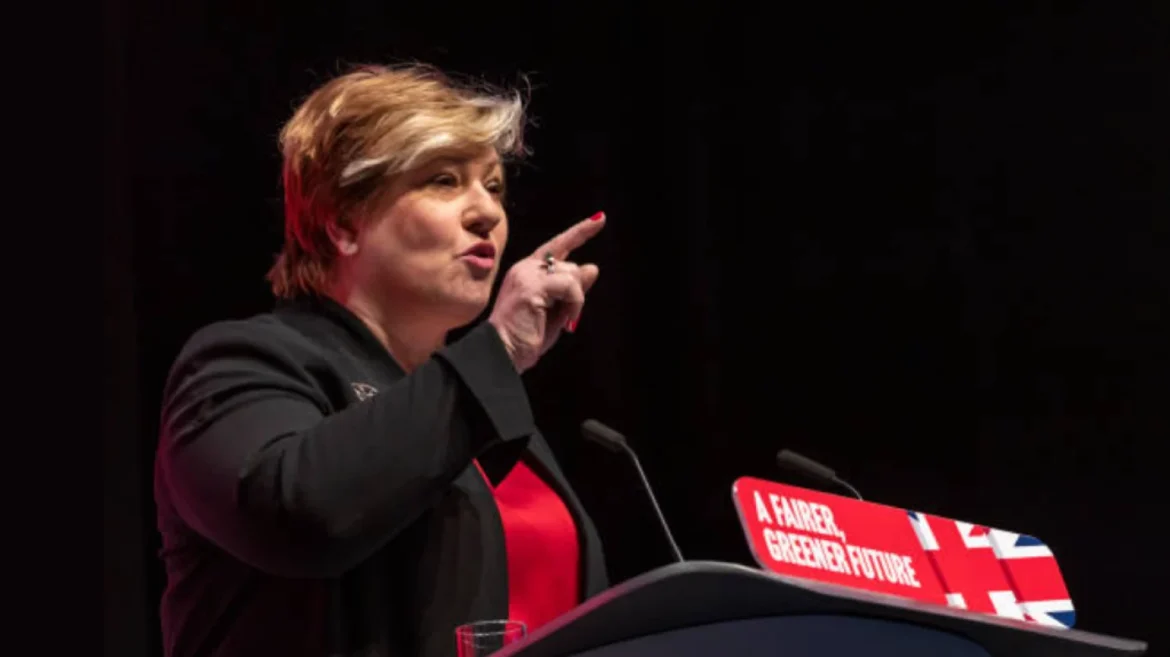Emily Thornberry and Paula Barker have officially exited the Labour deputy leadership contest, narrowing the field to three remaining candidates vying to succeed Angela Rayner. To advance, candidates must secure backing from at least 80 MPs by Thursday afternoon—a milestone Thornberry and Barker were unlikely to meet. Meanwhile, it remains uncertain if backbencher Bell Ribeiro-Addy will reach this threshold by the 5 pm deadline.
Education Secretary Bridget Phillipson and former minister Lucy Powell appear poised to progress to the next round. Phillipson leads with over 116 nominations from parliamentary colleagues. Powell, recently dismissed as Commons leader, follows with 77 nominations.
Table of Contents
ToggleWhat led to Thornberry and Barker’s withdrawal?
Thornberry, chair of the Commons foreign affairs committee, gathered 13 MP nominations, while Barker had 14. Bell Ribeiro-Addy held 15. Thornberry expressed gratitude to Labour members via social media and praised her fellow candidates. Barker emphasized the need for a deputy leader who listens to members and challenges the government constructively. She has since endorsed Lucy Powell, describing her as “a constructive friend to the government.” Here is the link to our article on Hindi Politics Debate.
Who remains in the race and what are their chances?
After Housing Minister Alison McGovern withdrew last week and backed Phillipson, only three candidates remained. To reach the final ballot, contenders must also earn support from 5% of local parties or three Labour-affiliated groups, such as trade unions. The voting period runs from October 8 to October 23, with results announced two days later. Candidates will present their platforms during hustings at the Labour conference in late September.
How is the leadership contest impacting Labour politics?
The contest is an unwelcome distraction for Prime Minister Sir Keir Starmer. It offers a platform for dissatisfied MPs and members to voice concerns about his leadership. Phillipson’s cabinet position has helped secure loyalist nominations, but this may alienate members who favor a more independent candidate. Both Ribeiro-Addy and Barker have openly criticized government policies, notably on the Gaza conflict, reflecting internal party divisions. Here is the link to our article on National Indigenous Focus.
What do senior Labour figures want in the next deputy leader?
There is a growing consensus that the new deputy should be a woman and from outside London. This aims to address perceptions of the party’s London-centric, male-dominated leadership. Regardless of the outcome, the deputy leader role will not include being deputy prime minister; that position is held by David Lammy, appointed by Starmer.
What triggered the vacancy for deputy leader?
Angela Rayner stepped down after it was revealed she had unpaid tax related to her £800,000 property in Hove. An ethics investigation found that while she sought legal advice during the purchase, she did not obtain specialized tax guidance as recommended. Despite this oversight, Rayner accepted full responsibility for the mistake. She emphasized that she never intended to underpay taxes and was committed to rectifying the issue. This development played a significant role in her decision to resign from her position.
Final Thoughts
The Labour deputy leadership race is reshaping party dynamics amid challenges and shifting alliances. As candidates withdraw, the focus intensifies on who can unite Labour members and deliver effective opposition. This contest underscores the importance of the Labour deputy leadership role in defining the party’s future direction. Observers will watch closely as the remaining candidates vie for support in this critical political moment within the Labour deputy leadership contest.


